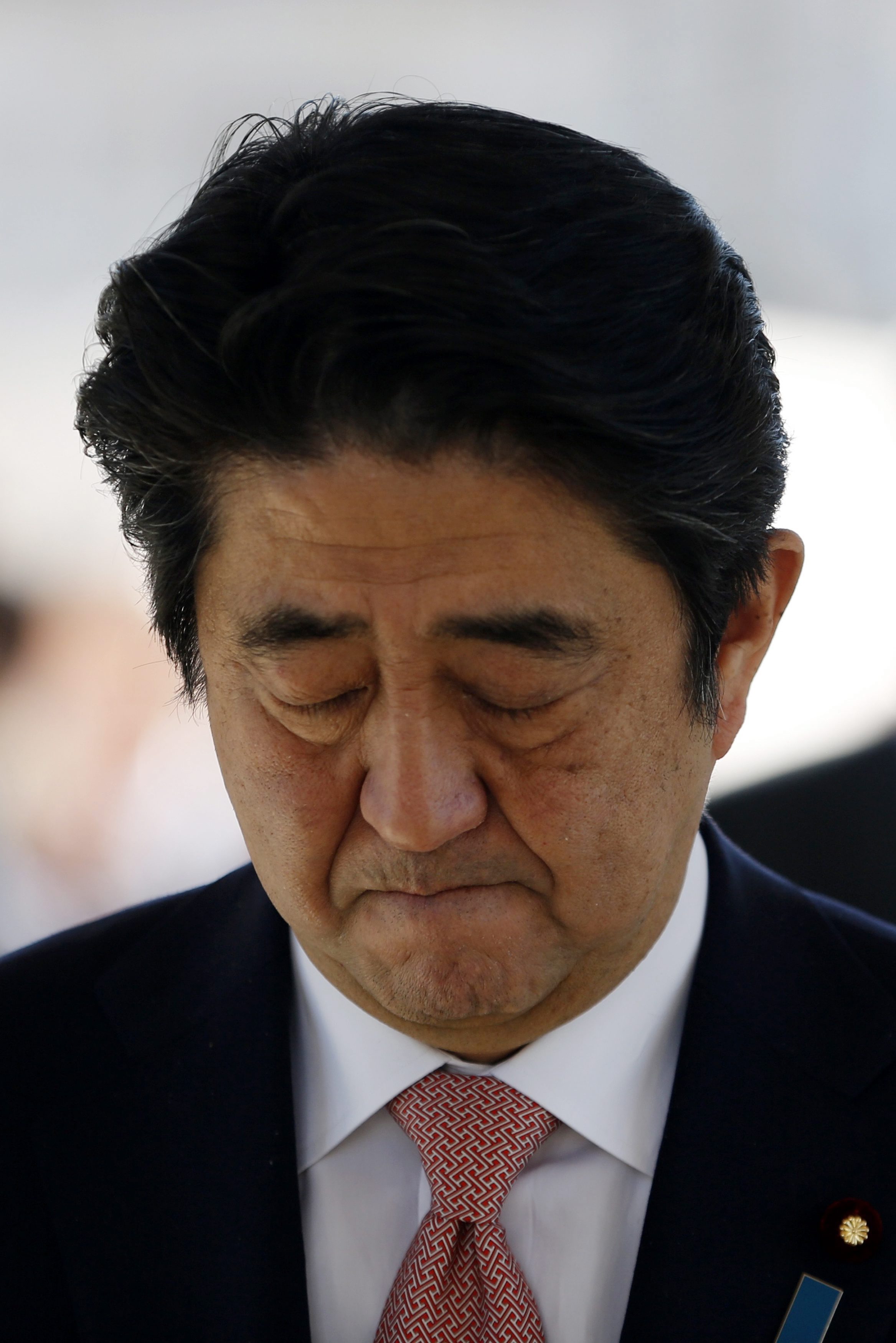(USA TODAY) -- A video purporting to show the Islamic State group threatening to kill two Japanese hostages unless they get a $200 million ransom in the next 72 hours was posted online Tuesday.
The video shows a black-clad, masked British-accented man standing between two hostages in orange jumpsuits who are identified in captions as Kenji Goto Jogo and Haruna Yukawa.
The video, called A message to the government and people of Japan, has been identified as being made by the Islamic State group's al-Furqan media arm and was posted on militant websites associated with the extremist group.
In the video, which could not immediately be independently verified, the militant says the Japanese government has made the "foolish" decision to provide $200 million to fight the Islamic State. His comments likely refer to money Japan's Prime Minister Shinzo Abe pledged while in Egypt to help Iraq's government and aid Syrian refugees. A U.S.-led coalition is waging a military campaign against the group in Syria and Iraq.
Addressing Abe, the militant says: "Although you are you more than 8,500 kilometers (5,280 miles) away from the Islamic State, you willingly have volunteered to take part in this crusade."
He demands 100 million for each hostage. The militant does not specify a currency, but a subtitle in Arabic said it was U.S. dollars, Reuters reports.
The militant says the Japanese public "have 72 hours to pressure your government" to pay the $200 million to save the hostages' lives.
Abe and other Japanese officials declined to say whether they would make the payment.
Speaking in Jerusalem, Abe vowed to save the hostages. "Their lives are the top priority," he said. "Extremism and Islam are completely different things." Abe is currently on a six-day visit to the Middle East with more than 100 government officials and presidents of Japanese companies.
Abe said he would send Yasuhide Nakayama, a deputy foreign minister, to Jordan to seek the country's support and to resolve the hostage crisis. He also said the Israeli government, which Japan promised Sunday to cooperate with on counter terrorism, are sharing information to aid in the hostage crisis. The Israeli prime minister's office declined to comment.
Japan's Foreign Ministry's anti-terrorism section has seen the video and analysts are assessing it, a ministry official told the Associated Press on condition of anonymity because of department rules.
Speaking in Tokyo, Chief Cabinet Secretary Yoshihide Suga said: "If true, the act of threat in exchange of people's lives is unforgivable and we feel strong indignation." He told journalists: "We will make our utmost effort to win their release as soon as possible."
In August, a Japanese citizen believed to be Yukawa, 42, a private military company operator, was kidnapped in Syria after going there to train with militants, according to a post on a blog he kept. Pictures on his Facebook page show him in Iraq and Syria in July. One video on his page showed him holding a Kalashnikov assault rifle with the caption: "Syria war in Aleppo 2014."
"I cannot identify the destination," Yukawa wrote in his last blog post. "But the next one could be the most dangerous." He added: "I hope to film my fighting scenes during an upcoming visit."
Nobuo Kimoto, an adviser to Yukawa's company, told Japanese public television station NHK that he had worried "something like this could happen sooner or later." He said: " I was afraid that they could use Yukawa as a card."
Goto, 47, is a respected Japanese freelance journalist who went to report on Syria's civil war last year and knew of Yukawa.
"I'm in Syria for reporting," he wrote in an email to an Associated Press journalist in October. "I hope I can convey the atmosphere from where I am and share it."
A British-accented jihadi also has appeared in the beheading videos of slain American hostages James Foley and Steven Sotloff, and with British hostages David Haines and Alan Henning.
The Islamic State group, also known as ISIL or ISIS, has beheaded and shot dead hundreds of captives — mainly Syrian and Iraqi soldiers — during its sweep across the two countries, and has celebrated its mass killings in extremely graphic videos. It also holds British photojournalist John Cantlie, who has appeared in other extremist propaganda videos, and a 26-year-old American woman captured last year in Syria while working for aid groups. U.S. officials have asked that the woman not be identified out of fears for her safety.
The Islamic State has suffered recent losses in airstrikes by a U.S.-led coalition, and with global oil prices being down, their revenue from selling stolen oil likely has dropped as well. The extremists also have made money from extortion, illicit businesses and other gangland-style criminal activity.
Its militants also recently released some 200 mostly elderly Yazidi hostages in Iraq, fueling speculation by Iraqi officials that the group didn't have the money to care for them.
Last week, the group released a video purporting to show a child executing two men accused of being Russian spies who tried to infiltrate the militant organization in Syria. The authenticity of the video, released by SITE Monitoring Service, could not be verified.
Contributing: Associated Press


